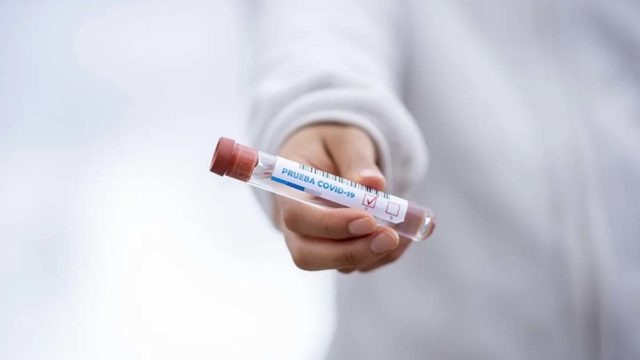
The Costa Rican Social Security Fund (CCSS) already has in its hands the first 80 vials of the treatment against Covid-19 developed in Costa Rica, which must now be tested in hospitals.
The Clodomiro Picado Institute (ICP) of the University of Costa Rica (UCR) delivered the first vials of the equine serum against COVID-19 to the CCSS on August 10th. This is an important scientific achievement for the country, according to the president of the Fund, Román Macaya. “Few countries in the world can achieve such a fast, high-quality product with strict controls that demonstrate a high neutralizing power of the Virus,” said Macaya.
Now, the Fund must test the effectiveness of this treatment in hospitals. For that, the Ethics Committee of the institution must still approve the protocol for clinical trials in voluntary patients with COVID-19.
Initially, phase one tests will be carried out on 24 patients with COVID-19, who would be admitted to the San Juan de Dios, Calderón Guardia hospitals and the Specialized Center for the Care of Patients with COVID-19 (Ceaco).
The delivery of the vials, however, marks the culmination of a four-month process, according to the ICP researcher Alberto Alape. In April, the Fund announced the start of this initiative and, two weeks ago, laboratory tests confirmed that the serum inhibits SARS-Cov-2.
This treatment is similar to the one developed by the ICP for snakebite treatments: it uses powerful horse antibodies to neutralize the coronavirus in the cells of the body.
Clinic tests
As Alape confirmed, the Caja’s Ethics Committee is already reviewing the protocol for clinical trials. According to Macaya, this will be the first step towards using it widely in hospitals. “The protocol is very important, because it is the route that will be followed in the evaluation of these therapies in the clinical part. We are in a high risk phase due to everyday cases and this is a solution that we hope will be very effective so that it can be implemented very quickly” said the president of the Fund.
Phase one testing begins with a small group of patients, whom the drug is tested on, to make sure the Virus is neutralized safely for people. The authorities expect to have the results of this phase in a matter of a month.
The possible adverse side effects of an equine plasma drug “are widely known,” added the president of the CCSS, so the institution “knows how to treat a patient who might develop allergies. This has not been a problem in decades”.
The research center developed two types of strain serums: one attacks a single very important Coronavirus protein and another attacks four different Virus proteins. Each will be tested in a group of 13 patients.
It is not a vaccine
Something that is important to explain, according to Macaya, is that the UCR serum is not the same as a vaccine, it is simply a treatment. It will be used to treat hospitalized patients for Covid-19. “This is not a substitute for the vaccine. This is a therapeutic strategy to help us as a country until we have access to the vaccine, so that we lose the least amount of patients due to COVID-19,”Macaya explained.
If it works, the treatment will reduce the time of patients in the hospital, something that would help avoid saturation of beds. “Rotating beds is increased hospital capacity,” Macaya said.
The SARS-CoV-2 Coronavirus enters cells using proteins called Spike. These are the small bumps that give it its name “corona.” With them, it binds to the cells of the body and infects it. The treatment developed by the Clodomiro Picado Institute precisely seeks to counteract the Spike proteins, to prevent the Virus from entering the cells. Equine antibodies accomplish this task. These come from horses “hyperimmunized” against the Coronavirus, which produce an antibody load 100 times more potent than convalescent plasma, for example.
“Another mechanism by which antibodies can act is by tagging infected cells so that they are destroyed by other cells of the immune system. We are going to see how the two mechanisms work in patients ”, explained Alape.


